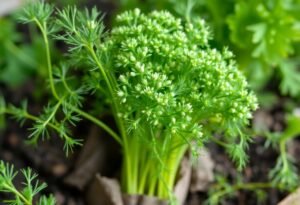What is the black aphid?
The black aphid, also known as Aphis fabae, is a tiny pest that targets numerous types of plants. Its presence often leads to yellowing leaves, distortions, and weakened plants. Moreover, black aphids can transmit plant viruses, resulting in further damage to your garden.
Symptoms of black aphid infestation
Recognizing the symptoms of black aphids is vital. The most common signs include:
- Deformed leaves and yellowing.
- Aphis clustering on the undersides of leaves.
- The presence of a sticky residue (honeydew) indicating aphid activity.
- Overall weakness in plant growth.
Regular inspections will allow you to spot troubling changes early and implement appropriate actions.
How to effectively eliminate black aphids?
Combatting black aphids requires a multifaceted approach. Here are a few strategies:
- Natural predators – Introducing ladybugs or lacewings, which consume aphids, can significantly reduce their population.
- Horticultural oil – Applying natural horticultural oils can block the respiratory system of aphids.
- Soap and water solution – A soap-based spray is a well-known method for effectively eliminating black aphids by disorienting them and leading to their demise.
The timely application of these methods increases your chances of success.
Preventive strategies against black aphids
To avoid the appearance of black aphids, it’s essential to follow a few straightforward guidelines:
- Regular pruning – Maintaining plants and keeping them healthy makes it difficult for aphids to establish.
- Proper watering – Avoid over or under-watering, which can weaken plants and make them more susceptible to pests.
- Crop rotation – Changing planting locations prevents aphids from becoming entrenched in a specific area.
Natural ways to combat black aphids
Many gardeners turn to natural solutions for dealing with black aphids. Consider these options:
- Organic insecticides – Using natural insecticidal solutions can help control aphids while remaining safe for other organisms.
- Attracting beneficial insects – Planting flowers that attract predatory insects like bees and ladybugs can help control aphid populations.
Which plants can defend against black aphids?
Certain plants can act as natural repellents against black aphids. They include:
- Mint
- Lavender
- Garlic
Including these in your garden can substantially lower the risk of aphid attacks.
Conclusion
Regardless of how passionate we are about gardening, black aphids can pose a significant challenge. It’s crucial to swiftly identify this pest and know reliable methods to fight it. By nurturing our plants and applying effective techniques, we can enjoy a beautiful and vibrant garden. Don’t wait—start addressing this issue today!
Disclaimer
This article is for informational purposes only, and any described methods should be implemented at your own risk.

















